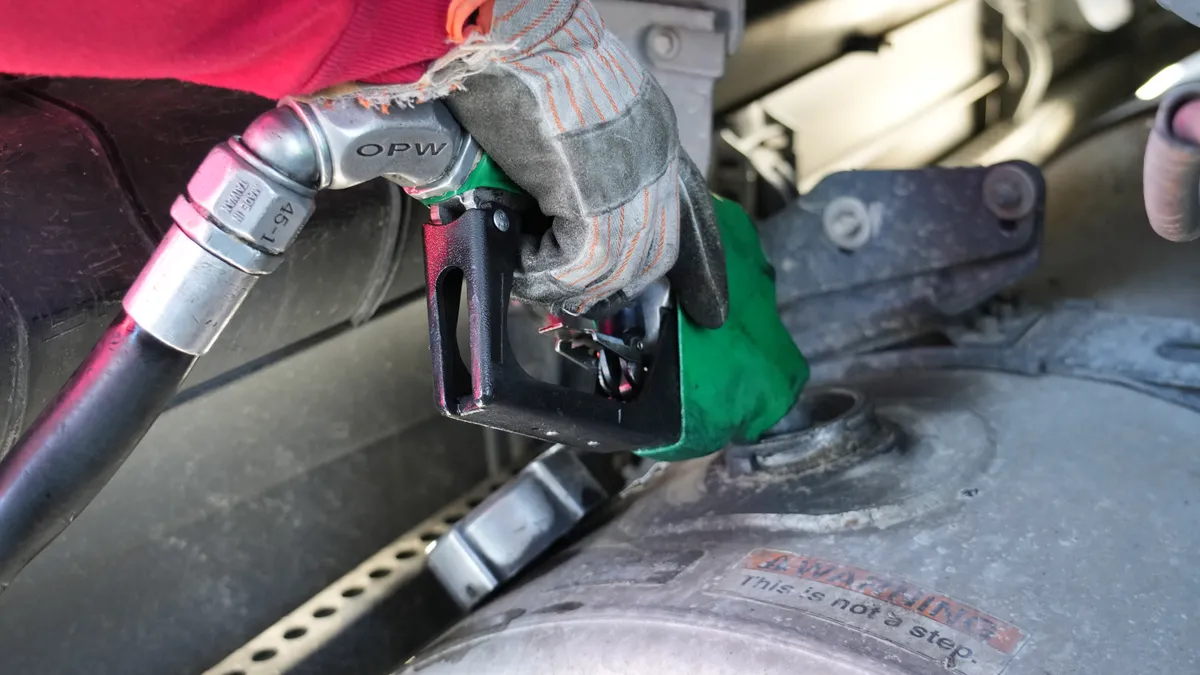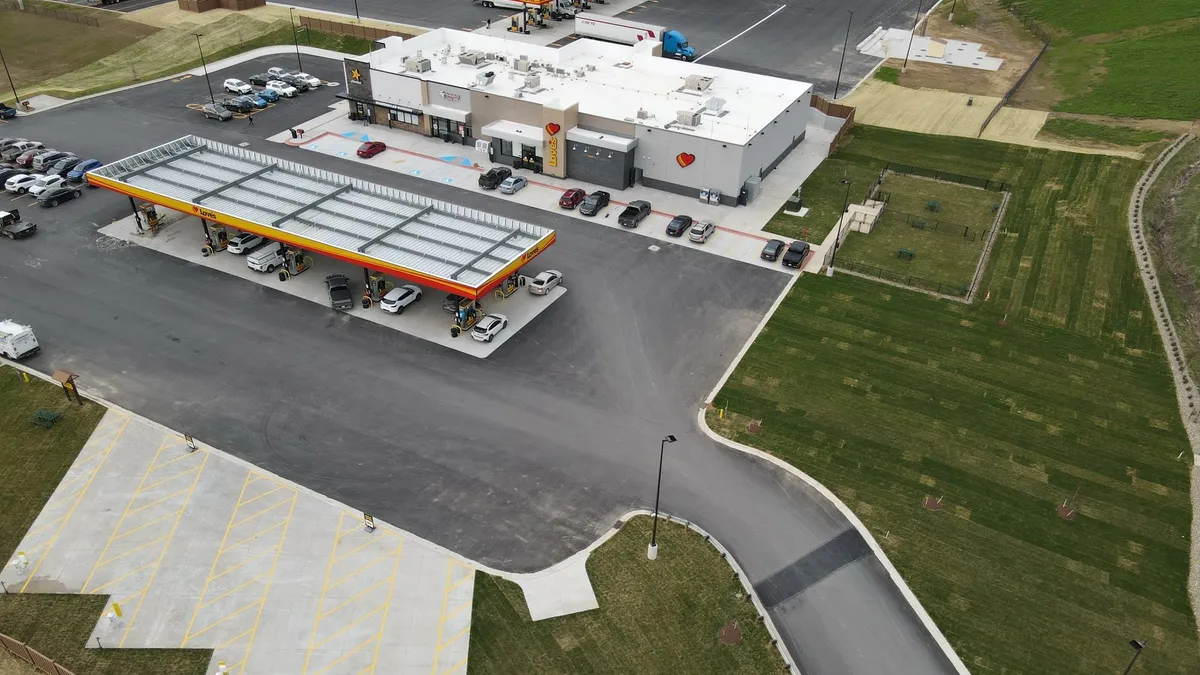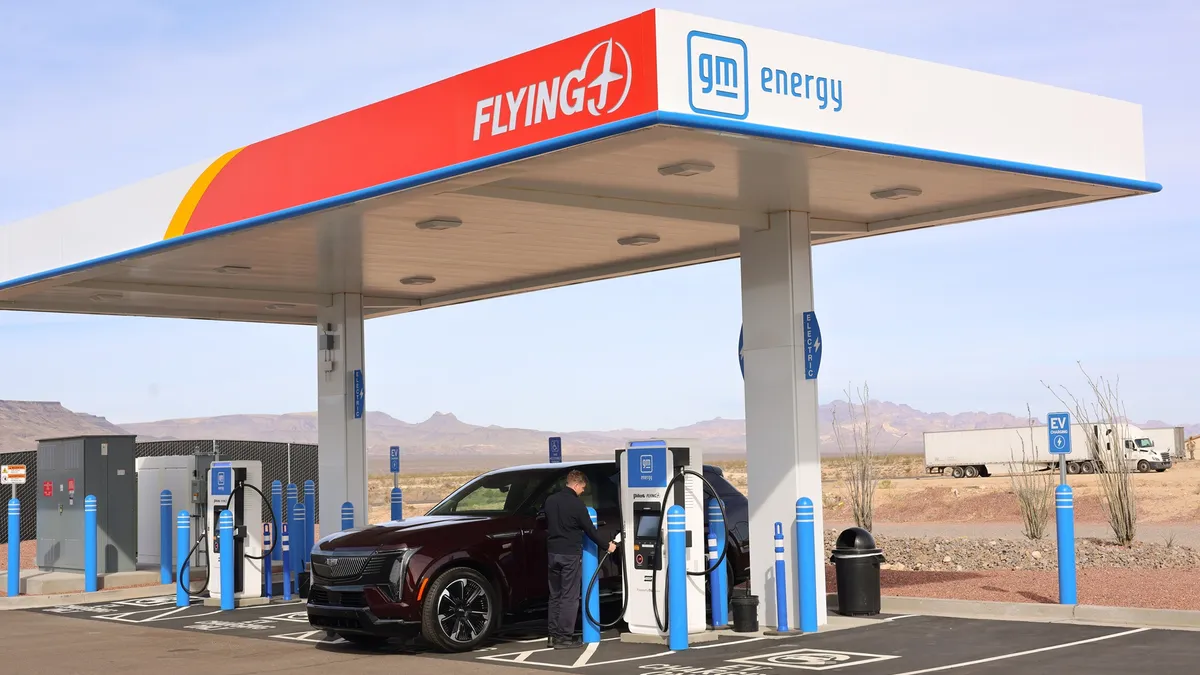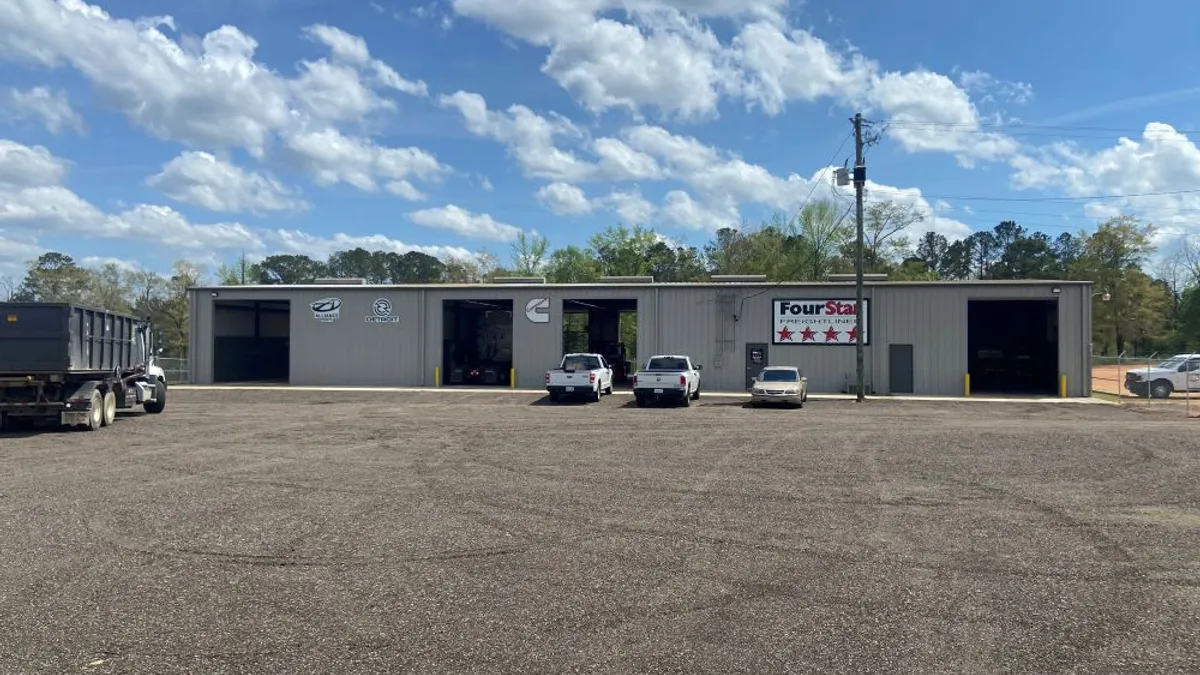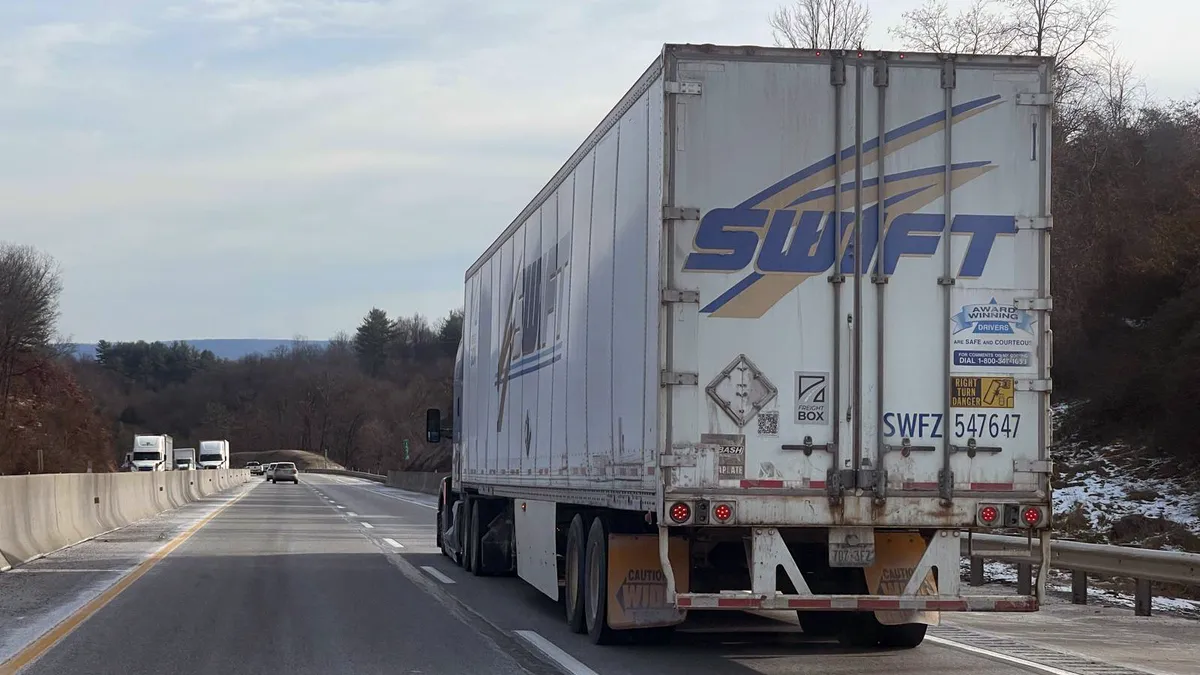A trucker shared photos on Facebook last week of Carroll Fuel marquees advertising $4.43 and $4.25 per gallon of diesel near the Port of Baltimore. Two other drivers responded they had seen stations charging $4.39.
"They dropped the tax," a fourth commented.
Maryland became the first state in the U.S. to enact a 30-day gas tax reduction this month. On the same day, Georgia enacted a longer one lasting nearly three months. Republicans in California failed to force a vote on suspending the gas tax there, but other states continue to weigh similar measures amid consumer frustration at swelling gas prices and inflation overall.
Some gas stations have lowered prices, which are subject to a slew of other factors, but governments cannot require them to do so. Even falling prices could fail to put a dent in fuel costs for interstate truckers because the International Fuel Tax Agreement, a tax paid to states for use of their roads, remains in place.
"I don't think they're going to do anything for the trucking industry," said Lewie Pugh, executive vice president of the Owner-Operator Independent Drivers Association, referring to the tax relief measures.
"No matter where they bought fuel," Pugh said, "they still have to pay the tax in each state for the miles they run."
'We urge states to reconsider these schemes'
The American Trucking Associations has lobbied against reducing fuel taxes at the federal level, citing concerns about jeopardizing funding for critical maintenance projects. The group also opposes the state-level efforts.
"These suspensions will do little to nothing to ease the burden on consumers — including trucking companies — while compromising states' ability to collect needed revenue for important infrastructure investments," said Darrin Roth, ATA vice president of highway policy, in an email.
Fuel excise taxes are collected by gas stations at the wholesale level, not directly from drivers at the pump, Roth pointed out.
"It is questionable that the savings from these tax holidays will even be passed on to the consumer," he wrote. "We urge states to reconsider these schemes and to not play politics with these important user fees."
Georgia's Department of Revenue is considering a regulation that would exempt truck drivers from IFTA by treating miles in Georgia as tax-free during its tax holiday, said Ed Crowell, president and CEO of the Georgia Motor Trucking Association, in an interview.
"Once those are in place, which I expect in the next week or so, then you'll see some impact in the benefit of the trucking industry as a whole," Crowell said Tuesday.
It's the second time the state has suspended its gas tax collection in the past year, with another following the shutdown of the Colonial Pipeline last May, the Atlanta Journal-Constitution reported. Crowell does not expect the current tax holiday to be extended, "unless something dramatically bad happens," he said.
"This is not a silver bullet that fixes anything long term," he said. "It's of some relief, some help, for a short period of time."
Louis Campion, president and CEO of the Maryland Motor Truck Association, said the industry generally appreciates any reduction in fuel costs "that can help us alleviate the dramatic increases we've experienced."
"However, recognizing that fuel taxes do support transportation infrastructure, the state needs to ensure that the transportation trust fund is still made whole so that we don't see a shortfall or a reduction in projects that are funded in Maryland," Campion said.
State legislators told The Baltimore Sun they will use some of a $7 million surplus to backfill the gas tax holiday's $98 million hit to Maryland's Transportation Trust Fund, which pays for highway, transit and other projects.
'I'm trying to work out how we can make any money'
High fuel costs factor significantly into truck drivers' consideration of not only where to stop for gas but whether to even accept a load in the first place, said Corey Pointer Sr., owner-operator of T&C Trucking.
Route 68 through mountainous western Maryland, for instance, is a "roller coaster" of slopes that reduces trucks' gas efficiency in what drivers call "leaving fuel on the ground," Pointer said.
"You burn a lot of fuel going up and down that mountain," the 43-year-old Baltimore trucker said.
Lower fuel prices in Maryland and Georgia likely will draw drivers to gas up in those states, Pointer said, and he predicted other states would follow suit with gas tax reductions.
"This makes drivers laser-focused on filling up just in Maryland," he said, "not going too far, where they may have to fill up anywhere in another state."
But he too worried whether the IFTA tax for other states would negate fuel cost savings. He said he owed Pennsylvania $500 at the end of a quarter when his trucks drove in the state but didn't buy gas there.
"I'm trying to work out how we can make any money at this point," he said. "You're burning through the money of the rates quite frequently. And then, if you have a driver, you've still got to pay the driver, and the money is not really adding up."
A 'myopic' political 'gimmick'?
Politicians in Maryland and Georgia touted their respective fuel tax holiday laws.
Republican Georgia Gov. Brian Kemp wrote on Twitter: "We can't fix everything Washington has broken, but we are doing our part to lessen the impact on your wallet."
On Friday, I signed HB304 to temporary suspend the state fuel tax and give hardworking Georgians some relief at the pump. While we can't fix everything that Washington has broken, we are doing our part to lessen the impact on your wallet.https://t.co/9Mr56CP6Dg
— Brian Kemp (@BrianKempGA) March 22, 2022
Maryland Comptroller Peter Franchot, a Democratic candidate for governor whose agency regulates gas stations, had called for a 90-day tax reduction. He dubbed the 30-day measure "Peter Franchot's Gas Tax Holiday" in a campaign post on Instagram.
Michael Sakata, president and CEO of the Maryland Transportation Builders & Materials Association, was alone in testifying in opposition.
Sakata called the effort "myopic" during a March 15 joint hearing of state senate and house committees in Annapolis.
"It fails to consider alternative relief proposals that would have a greater impact on more Marylanders — namely, reducing the state sales tax for a similar period of time," he testified. "The lower-income residents of our urban regions who depend on mass transit to get around — and who need relief the most — will gain nothing from the bill as proposed."
In an interview, Sakata pointed out the average driver's savings are expected to be minimal: roughly $4 off a 12-gallon tank of gas. He advised other states considering such actions not to threaten funding streams for transportation projects for a gas tax holiday he called a "gimmick."
"Yes, people are feeling it at the pump, but they're feeling it everywhere, right?" he said. "They feel it on the gallon of milk. They're feeling it on the diapers they buy. They're feeling it on every single thing."



